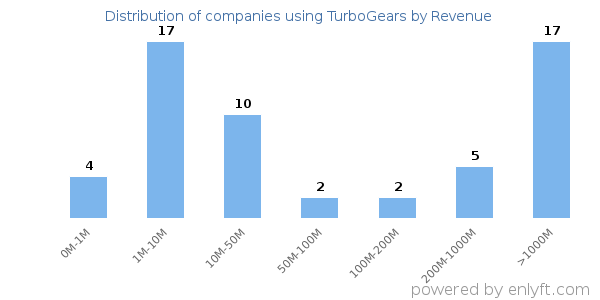Companies using TurboGears
We have data on 45 companies that use TurboGears. The companies using TurboGears are most often found in United States and in the Computer Software industry. TurboGears is most often used by companies with >10000 employees and >1000M dollars in revenue. Our data for TurboGears usage goes back as far as 7 years and 5 months.
Who uses TurboGears?
| Company | University of Arizona |
| Website | arizona.edu |
| Country | United States |
| Revenue | >1000M |
| Company Size | >10000 |
| Company | Synopsys Inc |
| Website | synopsys.com |
| Country | United States |
| Revenue | >1000M |
| Company Size | >10000 |
| Company | Samsung Electronics Co., Ltd |
| Website | samsung.com |
| Country | United States |
| Revenue | >1000M |
| Company Size | >10000 |
| Company | Columbia University |
| Website | columbia.edu |
| Country | United States |
| Revenue | >1000M |
| Company Size | >10000 |
| Company | Contrast Security |
| Website | contrastsecurity.com |
| Country | United States |
| Revenue | 100M-200M |
| Company Size | 200-500 |
| Company | Website | Country | Revenue | Company Size |
|---|---|---|---|---|
| University of Arizona | arizona.edu | United States | >1000M | >10000 |
| Synopsys Inc | synopsys.com | United States | >1000M | >10000 |
| Samsung Electronics Co., Ltd | samsung.com | United States | >1000M | >10000 |
| Columbia University | columbia.edu | United States | >1000M | >10000 |
| Contrast Security | contrastsecurity.com | United States | 100M-200M | 200-500 |
Target TurboGears customers to accomplish your sales and marketing goals.
TurboGears Market Share and Competitors in Software Frameworks
We use the best indexing techniques combined with advanced data science to monitor the market share of over 15,000 technology products, including Software Frameworks. By scanning billions of public documents, we are able to collect deep insights on every company, with over 100 data fields per company at an average. In the Software Frameworks category, TurboGears has a market share of about 0.1%. Other major and competing products in this category include:
Software Frameworks
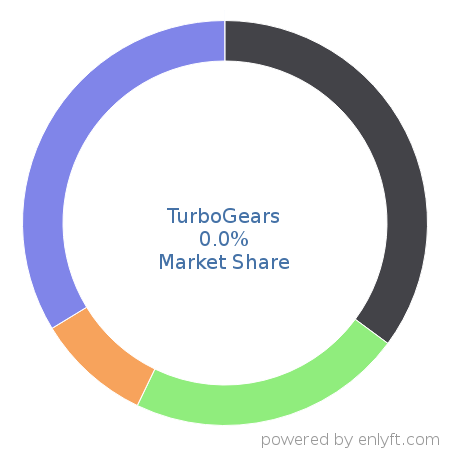

What is TurboGears?
TurboGears is a Python web application framework consisting of several WSGI components such as WebOb, SQLAlchemy, Genshi and Repoze. TurboGears is designed around the model-view-controller (MVC) architecture, much like Struts or Ruby on Rails, designed to make rapid web application development in Python easier and more maintainable.
Top Industries that use TurboGears
Looking at TurboGears customers by industry, we find that Computer Software (29%), Information Technology and Services (11%), Higher Education (11%) and Internet (7%) are the largest segments.
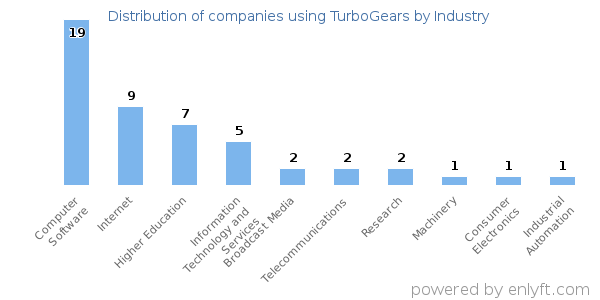
Top Countries that use TurboGears
56% of TurboGears customers are in United States.
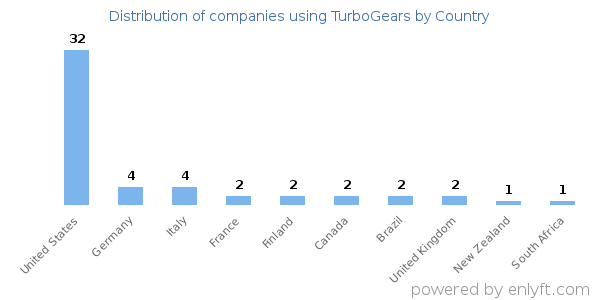
Distribution of companies that use TurboGears based on company size (Employees)
Of all the customers that are using TurboGears, 30% are small (<50 employees), 13% are medium-sized and 41% are large (>1000 employees).
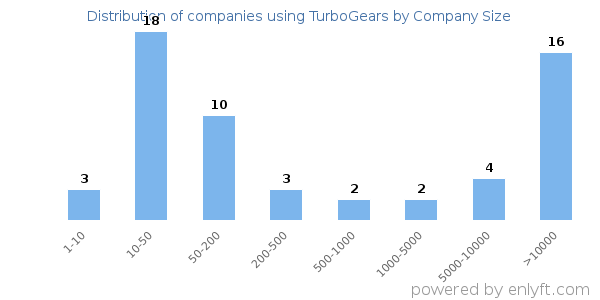
Distribution of companies that use TurboGears based on company size (Revenue)
Of all the customers that are using TurboGears, 42% are small (<$50M), 0% are medium-sized and 42% are large (>$1000M).
